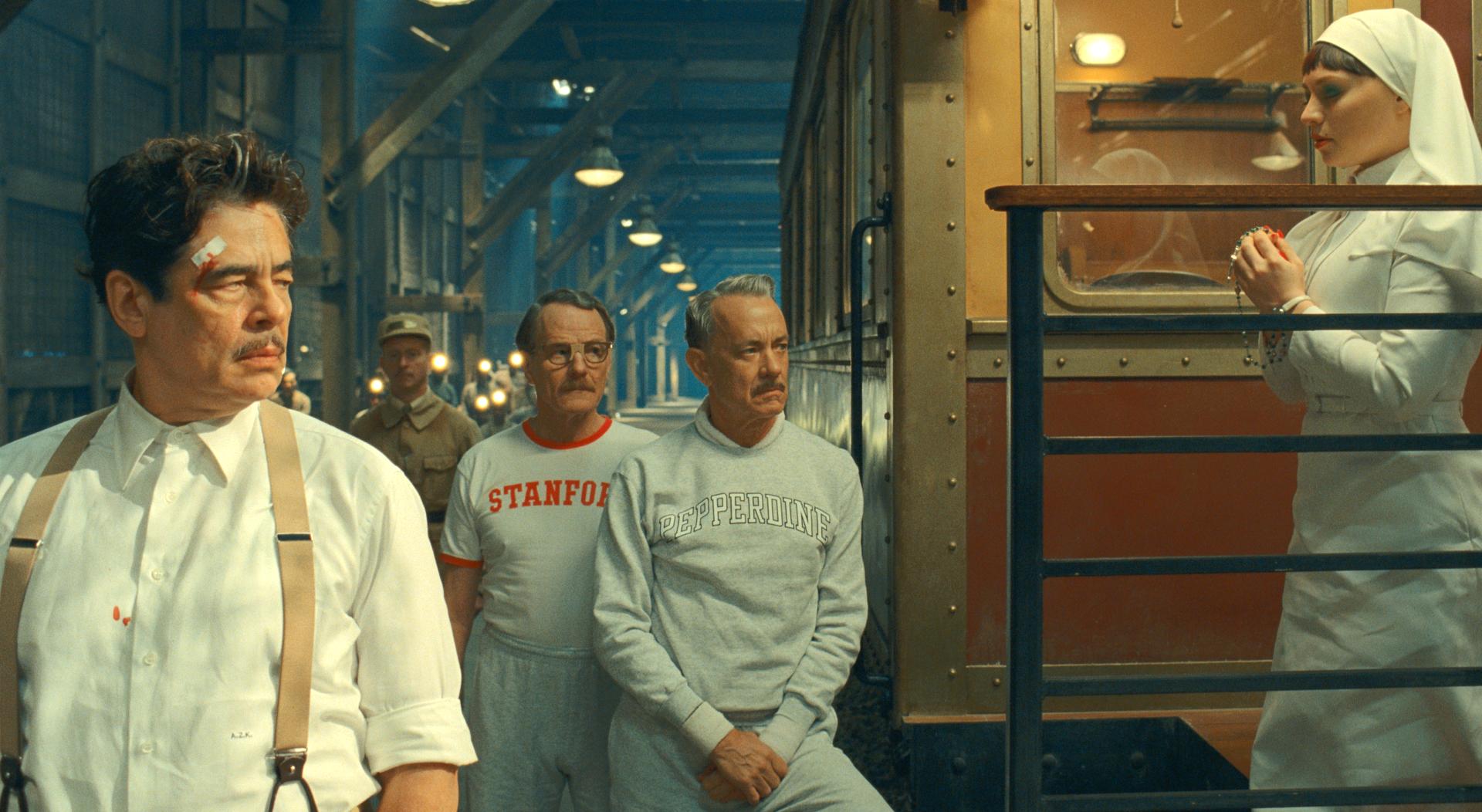The Phoenician Scheme
 for violent content, bloody images, some sexual material, nude images, and smoking throughout.
for violent content, bloody images, some sexual material, nude images, and smoking throughout.
Reviewed by: Raphael Vera
CONTRIBUTOR
| Moral Rating: | Average (somewhat offensive) |
| Moviemaking Quality: |
|
| Primary Audience: | Adults Young-Adults |
| Genre: | Action Crime Comedy |
| Length: | 1 hr. 41 min. |
| Year of Release: | 2025 |
| USA Release: |
June 7, 2025 (wide release—1,678 theaters) DVD: July 29, 2025 |
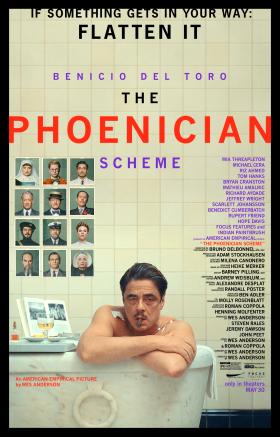



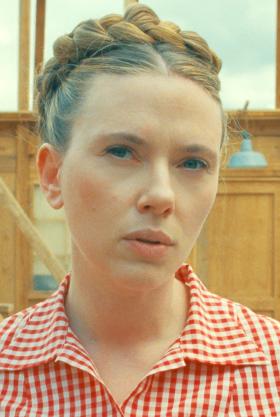
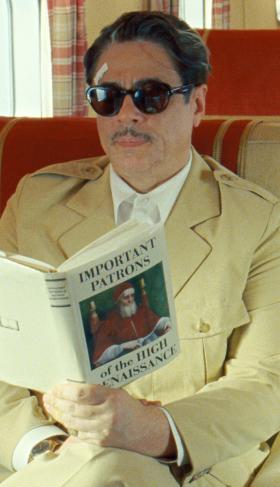
Deadpan humor
A wealthy businessman appoints his only daughter, a nun, as sole heir to his estate
Father and daughter relationship
Scheming tycoons without morals or concern for “human rights”
Father’s bad advice to his son: “If something gets in your way, flatten it.”
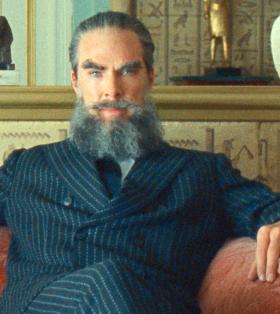
Oligarchs
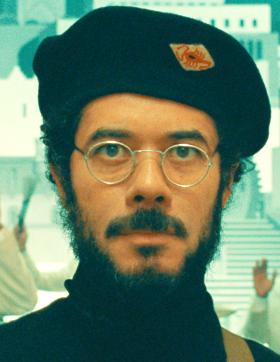
Terrorists and assassins

Why aren’t my prayers answered?
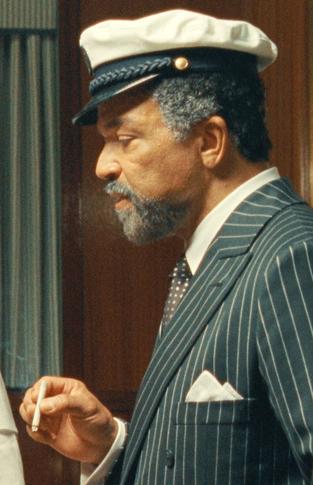
Films with underlying sadness and melancholy
Learn about spiritual darkness
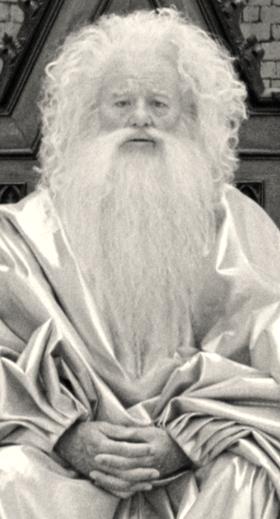

| Featuring |
|---|
|
Benicio Del Toro … Zsa-zsa Korda Willem Dafoe … Knave F. Murray Abraham … Prophet Tom Hanks … Leland Bryan Cranston … Reagan Benedict Cumberbatch … Uncle Nubar Scarlett Johansson … Cousin Hilda Michael Cera … Bjorn Charlotte Gainsbourg … 1st Wife Jeffrey Wright … Marty Bill Murray … God Rupert Friend … Excalibur Truman Hanks … Administrative Secretary See all » |
| Director |
|
Wes Anderson |
| Producer |
|
Wes Anderson Jeremy Dawson See all » |
| Distributor |
The film opens as industry Tycoon Zsa-zsa Korda (Benicio Del Toro) has a bomb go off in his airplane, but manages to survive the crash. Generally, Korda has treated these constant assassination attempts as just part of the cost of doing business. However, this latest brush with death convinces him that both his life and his company may soon come to a tragic end. So, Korda reaches out to his long-estranged daughter, Liesl to take over the business. Liesl (Mia Threapleton), who is on the verge of taking her vows to become a nun, has little interest in the company, yet she agrees to accompany him for the next month while she considers his offer.
“The Phoenician Scheme” follows Korda, Liesl and his new assistant Bjorn (Michael Cera) as they traverse the Middle-East to renegotiate the ‘scheme.’ One, that will either bring Korda, his partners and the region great riches or utter and complete ruin.
Political intrigue, family issues, loyalties tested, ethics questioned, and Korda’s own fevered dreams of an after-life decorate the chapters of Director Wes Anderson’s latest film like so many pastel-colored paintings in a modern art museum. How much you will enjoy the film will be mostly determined by the level to which you appreciate his signature ‘cinematic style’ over the film’s ‘narrative flow’.
Objectionable Content
LANGUAGE: Moderate. The Lord’s name is taken in vain three to four times and to a lesser extent when an Arab prince refers to Liesl as a ‘Bride of Christ’. Rough language heard includes: d**n (3) and h*ll (4-6), twerp, and hag. Bjorn compares Liesl’s beauty as surpassing those found in brothels and a red-light district and admits he visited a brothel. This is a vulgar conversation that makes both Liesl and the audience uncomfortable. In one of Korda’s dreams, God (Bill Murray) speaks of slavery and the crucifixion of his Son, to which Korda admits, “Oh, Jesus”. This scene and Korda’s confession later, give the impression that Liesl’s faith may have affected him positively, but only time will tell.
VIOLENCE: Moderate. Violent images include: an explosion where half of the victim disappears replaced by a large blood stain, a bullet wound with blood coming through it, and a man holding onto a bloody organ that has partially fallen out of his abdomen. Someone is shown sinking into quicksand, several die from self-inflicted cyanide poisoning, a man is shot to death in a spray of bullets, another is shown threatening to kill himself (and others) with a hand grenade, and a climactic battle includes stabbing, poison and an explosion.
SEX/NUDITY: A man speaks of going into a brohel, but it is not shown or described in detail. As a child Liesl describes the last time she saw her mother, who was topless, however this is only spoken, not shown. There is upper male nudity of an injured man in care of nurses, and female nudity is seen in artworks.
ALCOHOL/DRUGS: Minor. People are seen drinking beer, wine and champagne. Tobacco smoking is frequent.
WOKE ELEMENTS: none
Lessons
Themes in the film that stood out to me include fatherhood, the Catholic Church, and prayer.
FATHERHOOD. Liesl comes in response (obedience) to Korda’s summons but also to ask if he had anything to do with her mother’s death. Contrast that with Korda whose failure as a father has distanced him from all ten of his children. Holy Scripture speaks of our duties, both as children and fathers.
“Children, obey [your] parents in all things: for this is well pleasing unto the Lord. Fathers, provoke not your children [to anger], lest they be discouraged.” —Colossians 3:20-21, KJV
The Bible speaks on the dangers of showing favoritism as when Korda elevates Liesl as heir over her nine (9) brothers. This is not unlike Jacob favoring Joseph over his eleven other sons.
“But when his brothers saw that their father loved him more than all his brothers, they hated him and could not speak peacefully to him.” —Genesis 37:4
Liesl, despite her upcoming vow of poverty, does not hate her father because of his riches. She realizes that if she inherits his company, she may be able to do lot of good. Further, Liesl tells Korda from the outset that, with regards to the company in the region there shall be, “no slavery, no famine” and as for her brothers, “no [more] dormitory” since they will be moving into Korda’s house from then on.
“You shall do no injustice in court. You shall not be partial to the poor or defer to the great, but in righteousness shall you judge your neighbor.” —Leviticus 19:15
THE CATHOLIC CHURCH. The Catholicism and its associated institutions are cast in a poor light, not so much by Leisl but by the convent’s Mother Superior (Hope Davis). When Leisl seeks advice from her, she is instead chastised for the material goods that Liesl now has, which were given to her by her father. And yet, Mother Superior is more than willing to receive large financial donations from the Korda family. It is no wonder that Liesl asks, “Is God more interested in my money or my soul?”
PRAYER. Korda is amazed that a prayer Liesl made had immediate and miraculous results and asks what exact words she used. She responds, “The phrasing of it… I don’t recall, what matters is the sincerity of your devotion.” And maybe this is what gets Korda’s attention and possibly brings him closer to God.
Interestingly, by the film’s end, Liesl has her own confession, “When I pray, no one answers. I only pretend that He does. Then I do whatever I think He would have suggested. Usually it’s obvious.”
Therefore, at best she is going by her understanding of God’s Word, although at worst she is being led by her own heart. I can only hope that it is the former since we know what the Bible says about ‘following your heart’ without His Word to guide you.
“The heart is deceitful above all things and beyond cure. Who can understand it?” —Jeremiah 17:9
Final Thoughts
Wes Anderson’s directorial style, punctuated by left/right camera pans, symmetrical framing and overhead shots, plus cinematography that features vibrant, colorful pallets are often the two most cited reasons to see his films and I would agree. The divergence in opinion often emerges when critics and audiences start discussing how thought-provoking, gripping or comical of a film it is.
To me, the narrative in “The Phoenician Scheme” comes across as unfinished and consequently boring. The result is a less than compelling film which could never be mistaken for a straight-up comedy, but rather a sporadically amusing film. Much more adventurous and interesting than his last effort, “Asteroid City” (2023), the film gets bogged down by dialog that uses too many words to get to the point. Add to that the dubious and, if one takes Korda’s dreams seriously, borderline blasphemous content this is one scheme I recommend you avoid.
See list of Relevant Issues—questions-and-answers.


PLEASE share your observations and insights to be posted here.
